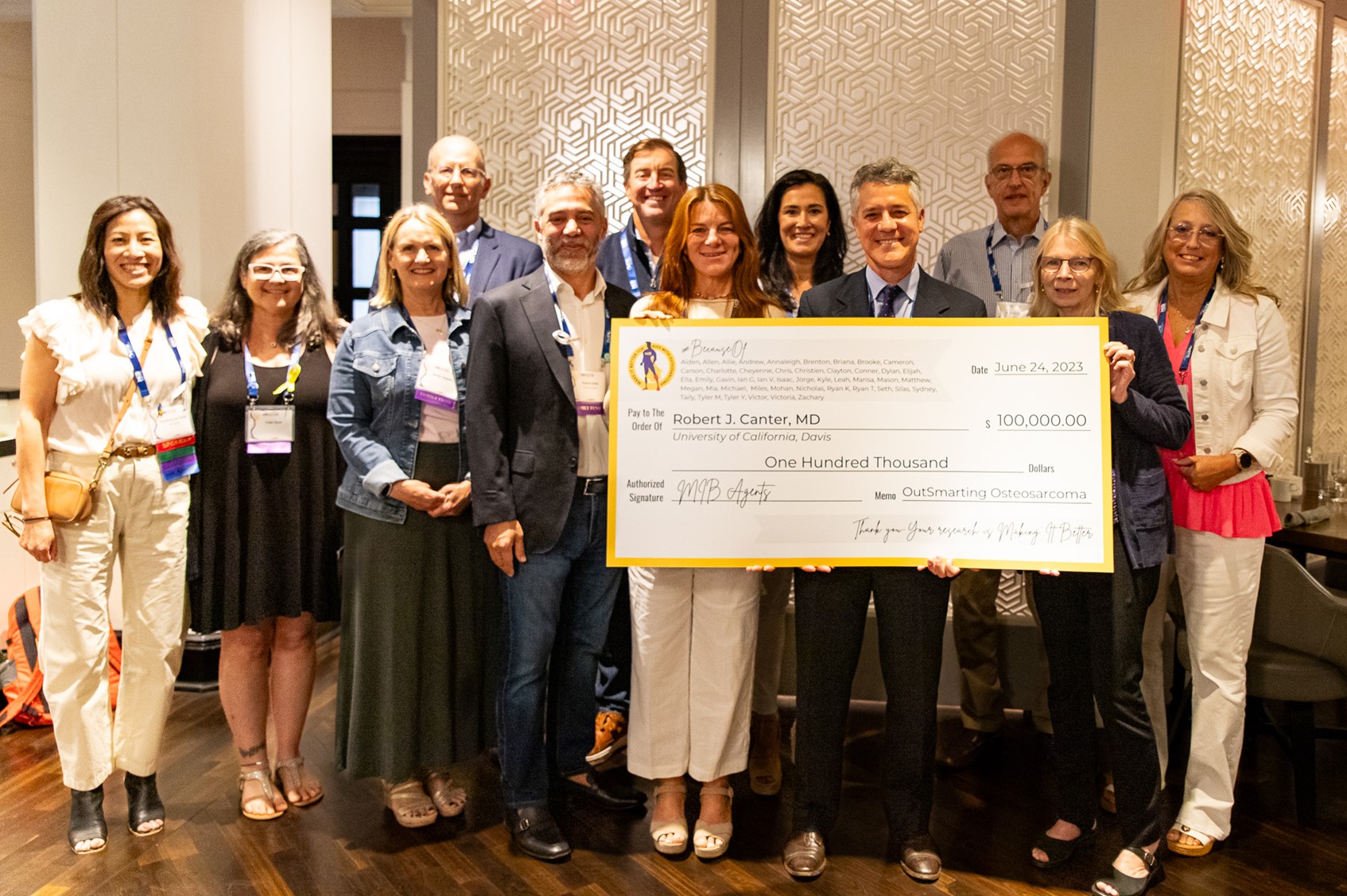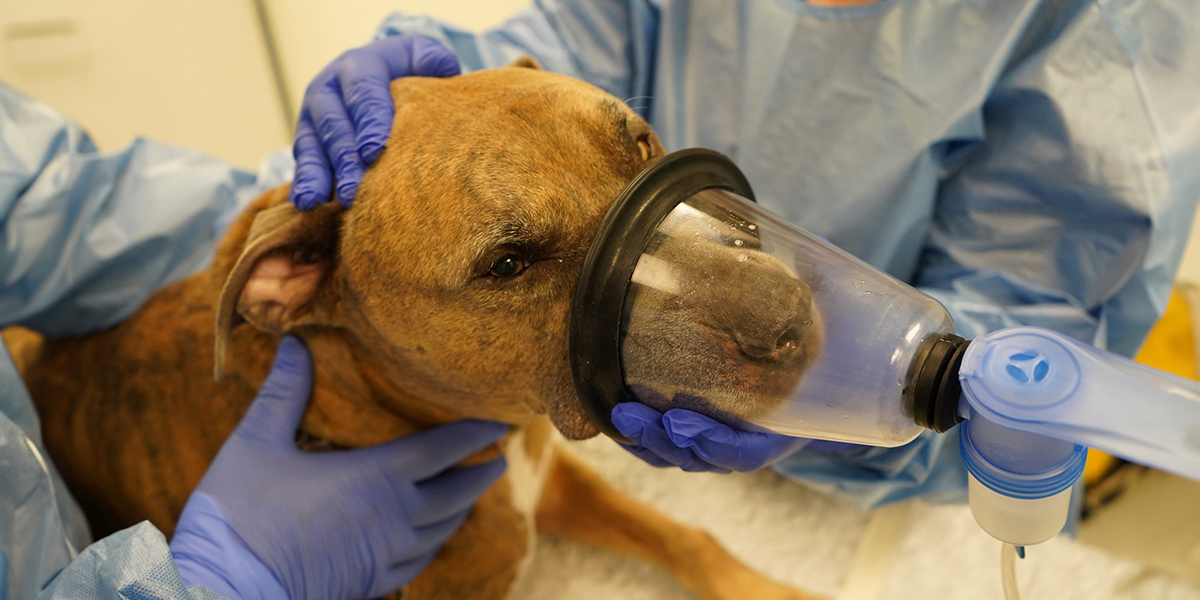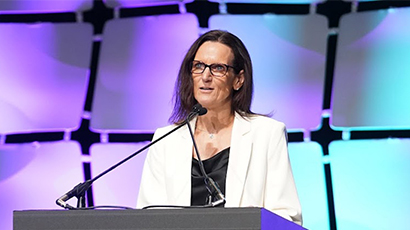The nation’s leading pediatric osteosarcoma nonprofit organization, MIB Agents, has awarded the cancer center’s Robert Canter a $100,000 “OutSmarting Osteosarcoma” grant. Canter, who is a clinical scientist and surgical oncologist, will use the funds for comparative oncology research of osteosarcoma.
About 1,000 people are diagnosed each year in the United States with osteosarcoma, a brutal bone cancer that mostly affects children and young adults — and also many dogs. It is much more common in canines than humans, affecting approximately 18,000 dogs in North America every year.
MIB Agents is a parent-patient advocacy group that fosters collaboration between osteosarcoma patient families and researchers, and awards grants for studies aimed at finding a cure for osteosarcoma.
Canter’s work with the UC Davis School of Veterinary Medicine conducting comparative oncology clinical trials in dogs caught the attention of MIB Agents. The organization wanted to help further his research exploring cures for osteosarcoma in pets in the hope that it could benefit people with osteosarcoma.
The grant will fund a clinical trial under the supervision of both Canter and veterinary oncologist David Vail at the University of Wisconsin-Madison School of Veterinary Medicine. Vail will use the grant to fund research similar to what is being conducted at UC Davis with companion dogs suffering from osteosarcoma.

“Companion dogs with osteosarcoma serve as a relevant parallel patient population with a very similar disease to childhood bone cancer,” Vail said. “And gains made in the treatment of one species could translate into gains for affected children.”
Canter agreed and said that even pathologists examining tissues microscopically encounter difficulty in discerning any differences between human and canine tumors.
New and improved clinical trial
Nearly a dozen pet dogs will be given inhaled dosages of Interleukin 15, an immunotherapy protein that the body naturally produces. They hope to see if the drug’s effectiveness can be extended by administering it for six months instead of two weeks, as in the UC Davis previous trial. In that trial, the dogs also were given a human version of Interleukin 15, Canter said. This time they will receive the canine version of the drug that is now available.
Interleukin 15 as an injectable form has not been promising in humans, Canter said. The hope is that breathing treatments with Interleukin 15 stimulates the immune system long enough to be effective without causing toxicity.
“I’m really excited about the clinical trial,” Canter said. “Will it be a game changer? We’ll have to see. We’ve been encouraged by the results of the short-course therapy, and it’s given us a good intellectual foundation to build the next trial.”





